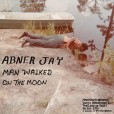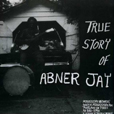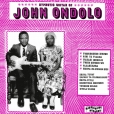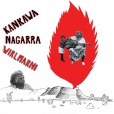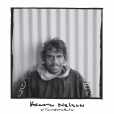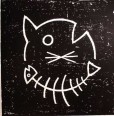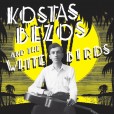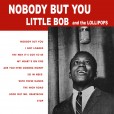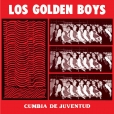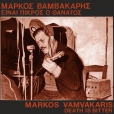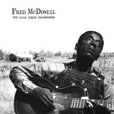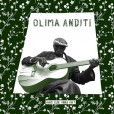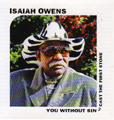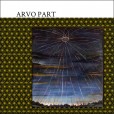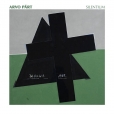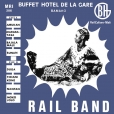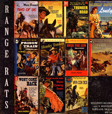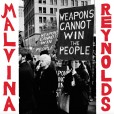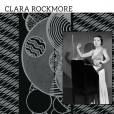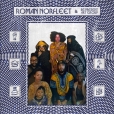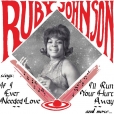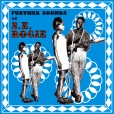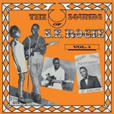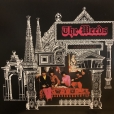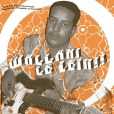Your basket is empty

A kind of greatest hits of the one-man-band, albeit all rare now, or previously unreleased.
An early version of Abner’s signature song I’m So Depressed, on LP for the first time, is followed by four unreleased recordings, on electric banjo, drums played by his feet, and harmonica.
The second side features Abner’s charged, mournful last recordings, not for the faint of heart, made two months before his death. These were released by Mississippi as a ten-inch EP back in 2011, entitled Last Ole Minstrel Man.
Wildly entertaining sixties outsider Americana from this one-man band out of south Georgia. With songs like I’m So Depressed, Cocaine, Vietnam and The Reason Young People Use Drugs.
Half price.
The unlikely Hawaiian-influenced Xabagies music of 1930s Greece: surrealist guitar portraits blurring Athens and Honolulu, haunting tropical serenades, wild acoustic orchestras, and heartbreaking steel guitar duets. With a 28-page booklet.
‘Classic Louisiana swamp soul / R&B, recorded in the early to mid 1960s. Includes the popular dancefloor fillers I Got Loaded and Stop, as well as some real beautiful obscurities. Ballads and stompers to make life better. Old school tip-on cover.’
‘Heady, raw, druggy songs of love, dread, hardship, and yearning, recorded in Athens between 1932 and 1936, when Markos was already a master of the bouzouki. His forceful, clean playing compliments his hoarse voice and his stunning rhythmic sensibility, the result of his years as a champion zebekiko dancer. Tracks build and spiral outward, his open-note drones and melodic lines drawing calls of ecstasy and encouragement from his fellow musicians. These recordings mark the height of rebetika, the brief period between the music’s emergence on the recording scene in the early 1930s and government censorship of all lyrics starting in 1936. During the Axis occupation there was no rebetika recording, and though Markos had some hits in the years after the war, he never again attained this level. These are the dizzying, entrancing, and heaviest works of one of the great artists of the 20th century.’
Olima Anditi is a blind guitarist beloved throughout Western Kenya for his old Luo songs about love, morality and politics. This warmly intimate session was recorded in his room in Kisumu, in 2010. Like Usiende Ukualale, it’s lovingly presented, with a colour booklet.
Thrilling primitive gospel from Alabama. Fuzzy, loud, dissonant guitar somewhere between Pops Staples, John Lee Hooker and the outsider R ‘n B of Hasil Adkins. True testifyin’ magic, and highly recommended.
‘One of the greatest, heaviest, and most sought-after guitar records from 1970s West Africa.’
‘Bamako, Mali, 1973: Rail Band, the official orchestra of the Malian state railway, drops their self-titled LP. It’s a relentlessly soulful and hypnotic blend of American funk, jazz horns, and Afro-Cuban music, steeped in centuries-old Mandé tradition.
Led by legendary trumpet and saxman Tidiani Koné and held aloft by the intricate web of Djelimady Tounkara’s reverb-soaked guitar, the Rail Band’s sprawling compositions embody West African storytelling traditions while exulting in the technology and modernity of a newly independent Mali. Vocalists Salif Keita and Mory Kanté are endlessly emotive, oscillating between silky ballads and funk screams. The band’s sound is filled out by layers of percussion, rolling guitars, and melodic horns filtered through the Caribbean.
‘Starting in 1970, the Rail Band played five nights a week, from 2 pm til the early hours, at the Buffet Hotel de la Gare. Their audience was an international array of businessmen, young partiers, and people of the Bamako night. The band was incredibly versatile, switching genres, rhythms, and styles to meet their crowd. It was a volatile mix, which would fall apart soon after these recordings were made. Here it is, one of the greatest bands to ever exist, at the height of its creative powers.’
Country punk from 1985.
‘Roman Norfleet and Be Present Art Group play deeply felt, sometimes earthy, and sometimes cosmic music. A trio (sax, drums, and organ) are augmented by additional percussion, soaring vocals, and even a vocal appearance by a toddler. Roman Norfleet and Be Present Art Group will take you where you need to go. A spiritual classic for the ages, following the lineage of Alice Coltrane and Pharoah Sanders yet firmly rooted in the present.’
Gorgeous, lilting Palm Wine classics from the venerable Sierra Leonean.
